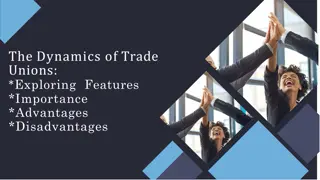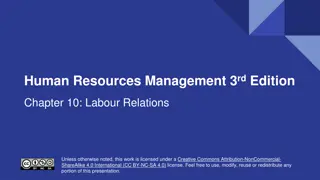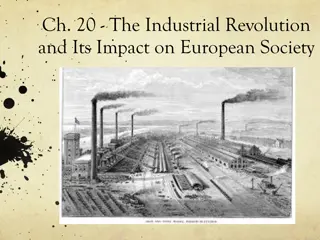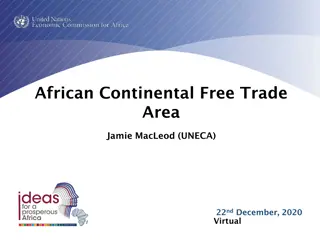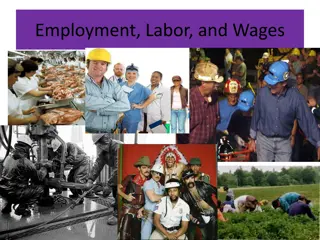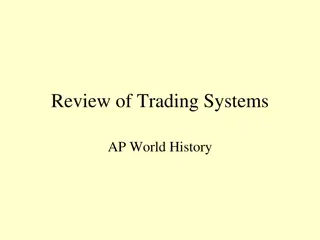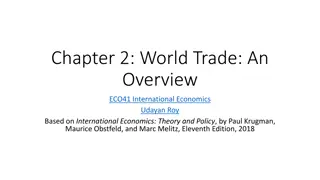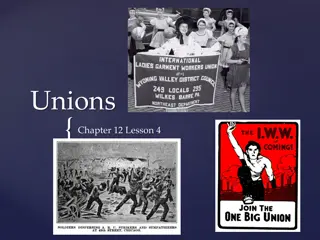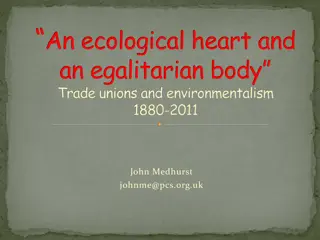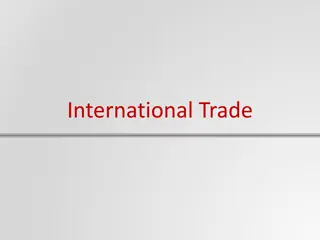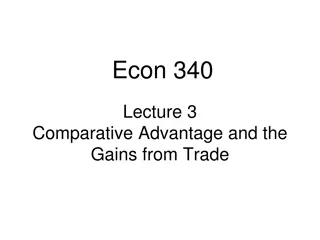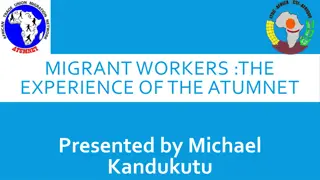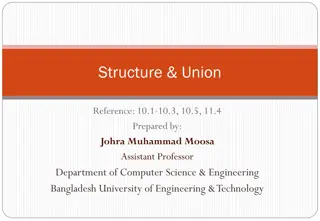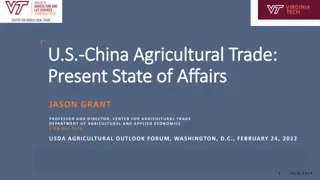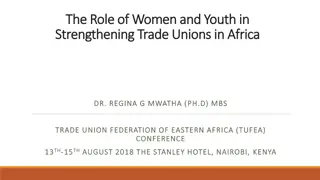Understanding the Dynamics of Trade Unions: Features, Importance, Advantages, Disadvantages
Trade unions are organizations formed by workers to protect their rights and negotiate with employers for better working conditions, wages, and job security. They play a crucial role in advocating for fair treatment, job security, and improved workplace conditions. While trade unions offer advantage
2 views • 10 slides
Understanding Labour Relations: History, Unionization, and Objectives
Explore the historical development of labour unions, reasons for changes in union membership, the process of unionization, collective bargaining, grievance management, and the role of HR in working with unions. Uncover the impact of unions on wages, benefits, job security, and working conditions, as
2 views • 16 slides
Working Constructively with Trade Unions: Strategies for Effective Collaboration
Explore key insights from the CIPD webinar on working constructively with trade unions featuring expert speakers discussing current labor challenges, the importance of effective communication, and strategies for enhancing employee relations. The session also highlights resources for well-being suppo
0 views • 15 slides
Nepal-Australia Trade Relations: Current Scenario and Future Outlook
Trade between Nepal and Australia is characterized by a significant trade deficit, with most of Nepal's trade being with India. The trade deficit has been attributed to various factors such as consumption patterns, production challenges, and weak marketing. The COVID-19 pandemic further impacted tra
0 views • 19 slides
Impact of Industrial Revolution on European Society
The Industrial Revolution had a profound impact on European society, characterized by key terms such as Agricultural Revolution, Capital, Pig Iron, Wrought Iron, Tariffs, Cholera, and Trade Unions. This period saw advancements in agricultural techniques, the rise of material wealth for production, t
1 views • 24 slides
Overview of the World Trade Organization (WTO)
The World Trade Organization (WTO) is an intergovernmental organization established in 1995 to regulate international trade among nations, replacing the General Agreement on Tariffs and Trade (GATT). It deals with trade in goods, services, and intellectual property, aiming to create trade agreements
2 views • 13 slides
Advancing the African Continental Free Trade Area: Opportunities and Challenges
The African Continental Free Trade Area aims to consolidate a fragmented market, capitalize on Africa's market growth, and diversify Africa's exports. With the potential to create a $2.3 trillion market of 1.3 billion people, the AfCFTA is poised to improve competition, lower business costs, and fos
0 views • 24 slides
Middle Income Housing Solutions for Credit Unions and Members
Providing practical approaches for middle income housing solutions beneficial to Credit Unions and members. Addressing the lack of assistance for middle income housing and the needs of Credit Unions, developers, and members for quality housing solutions, loans, and affordable payments.
0 views • 14 slides
Evolution of Labor Movement in America: From Printers to Industrial Workers
Labor movement in America started in 1778 when printers in New York City demanded higher pay, leading to the formation of labor unions. Over the years, the workforce shifted from farmers to factory workers due to immigration and industrialization. The Civil War and westward expansion further fueled
2 views • 34 slides
Overview of Ancient Trade Networks
Ancient trade networks such as the Silk Road and Indian Ocean Trade facilitated exchange of goods, ideas, and culture between distant regions. The Silk Road connected China to the Roman Empire, enabling trade in silk, precious stones, and metals. Indian Ocean trade routes linked China, Southeast Asi
8 views • 30 slides
Importance of Strategic Planning for Unions in Today's World
Strategic planning is crucial for unions in navigating the complexities of today's environment. Without a clear strategy, a union may struggle to achieve its goals and respond effectively to external influences. Strategic planning goes beyond reactive approaches, providing a roadmap for success by e
1 views • 33 slides
Understanding International Trade and Globalization
Explore the concepts of international trade, globalization, and their impact on the global economy. Discover how trade dynamics have evolved over the years, the role of tariffs and quotas, and the implications of trade imbalances. Delve into the effects of globalization and the interdependence of ec
0 views • 48 slides
Understanding World Trade Dynamics
Explore the intricacies of international trade in Chapter 2, "World Trade: An Overview," covering topics such as the Gravity Model, trade barriers, global production fluctuations, and the evolution of traded goods and services over time. Delve into who trades with whom, the impact of country size on
1 views • 32 slides
Fair and Alternative Trade: A Path to Ethical Consumption
Fair Trade and Alternative Trade practices aim to create a more equitable and just global marketplace. Fair Trade focuses on fair prices and relationships for producers, while Alternative Trade emphasizes partnership and respect between producers and consumers. Through these approaches, consumers ca
0 views • 19 slides
Enhancing Credit Unions' Potential with CredUView Consulting
CredUView Limited offers consultancy services tailored for credit unions and cooperatives, focusing on educational development, millennial engagement, and performance enhancement. Founded on principles of empowerment and community integration, led by seasoned professionals, CredUView drives credit u
0 views • 34 slides
Exploring European Regional Trade: Insights and Analysis
The study delves into European regional trade dynamics, focusing on sub-national units like provinces and their impact on trade patterns. Detailed trade flows data across 269 regions in 24 European countries from 2011-17 are analyzed using the gravity model. The significance of geographical level in
2 views • 17 slides
Understanding Variants and Unions in C++
Variants and unions are essential concepts in C++ programming for managing heterogenous data and optimizing memory usage. Variants allow storing objects of multiple types in a single container, while unions provide a way to efficiently utilize memory by sharing the same storage space for different t
0 views • 26 slides
The Rise of Unions and Labor Conditions in the Late 19th Century
Labor conditions in the late 1800s were harsh, with long work weeks, low wages, and no benefits for workers. Deflation caused a rise in the value of money, leading to resentment among workers who organized into unions to demand better wages and working conditions. Craft workers and common laborers f
0 views • 17 slides
Historical Overview: Trade Unions, Environmentalism, and Social Justice Movements
Explore the intertwined histories of trade unions, environmentalism, and social justice movements through key events such as the Bryant and May Match Girls' strike and the Triangle Shirtwaist factory fire. Visionaries like William Morris and Edward Carpenter advocated for fair working conditions, co
0 views • 46 slides
Insights into Early World Trade Routes
Early long-distance trade primarily dealt with luxury items like silk, gold, and spices before 1500. The growth of markets reflects economic vitality and the benefits and losses of trade on society have been analyzed historically. Trade networks connected diverse cultures, with trade diasporas datin
0 views • 20 slides
Understanding Labor Unions and Collective Agreements in the Workplace
A labor union, also known as a trade union in British English or a labor union in Canadian English, is formed by workers to achieve common goals such as better pay, improved working conditions, and job security. Through collective bargaining, unions negotiate with employers to improve wages, benefit
0 views • 29 slides
Unions Post-Weber: Representational Responsibilities For Human Rights
This presentation by Claire Mumm from the University of Windsor Faculty of Law discusses the impact of expanded jurisdiction over human rights issues post-Weber on unions' representational responsibilities for their members. It delves into the changes in DFR case law, claims against unions at Human
0 views • 37 slides
Knowledge Sharing on Trade & Investment in ACP House Brussels
The knowledge-sharing event focused on building trade capacity, improving competitiveness, and analyzing regulatory frameworks for trade and investment. It emphasized understanding EU market requirements, identifying future opportunities, and providing ongoing support for trade agreements. Various p
0 views • 17 slides
Directorate General of Foreign Trade: Promoting India's Exports and Trade
India's Directorate General of Foreign Trade, under the Ministry of Commerce, is responsible for formulating trade policies, promoting exports, and facilitating trade activities. With a focus on enhancing export performance, the DGFT plays a crucial role in supporting India's economic growth through
0 views • 22 slides
Understanding International Trade: Principles and Benefits
Delve into the world of international trade with a focus on absolute and comparative advantage, gains from trade, barriers, and protectionism. Explore the motivation for trade, specialization, and productivity gains. Learn about the basis for trade, including absolute and comparative advantage, and
0 views • 41 slides
Empowering Women Through Education and Community Engagement
The presentation discusses the importance of trade unions linking with communities for members' well-being and effective functioning. It emphasizes securing better working conditions, improving economic status, and enhancing members' standard of living. The focus is on traditional linkages, communit
0 views • 30 slides
Promoting Solidarity and Rights of Workers Globally through International Trade Unions
Joining trade unions and engaging in international work is crucial for promoting solidarity, protecting workers' rights globally, and challenging exploitation by multinational companies. UNISON's National LGBT+ Committee is actively involved in international work, aiming to advocate for LGBT+ worker
0 views • 16 slides
Understanding Comparative Advantage and Gains from Trade
In this lecture on comparative advantage and gains from trade, the concept of why countries trade, price differences, supply and demand, the Ricardian model of trade, identifying comparative advantage, and critiques of comparative advantage are discussed. The benefits of free trade and how it leads
0 views • 53 slides
African Trade Union Migration Network (ATUMNET): Addressing Migration Governance in Africa
The African Trade Union Migration Network (ATUMNET) focuses on addressing the governance of migration in Africa, emphasizing the importance of trade unions in shaping policies for migrant workers. Formed in 2016, ATUMNET aims to enhance the rights of migrants and refugees while promoting development
0 views • 12 slides
Raising Awareness for Trade Union Issues with TCO in Sweden
Empowering young professionals in Sweden to understand and appreciate the value of trade unions through the TCO federation's efforts. Communicating the Swedish part model and promoting strong trade unions as core to the country's success.
0 views • 17 slides
Industrial Relations in Poland: Pre-COVID-19 Overview
Industrial relations in Poland provide insight into trade union membership, employment contracts, and the landscape for self-employed individuals. The country has seen amendments to trade union laws, granting rights to join unions for various employment types. Trade unions play a significant role, w
0 views • 31 slides
Understanding Industrial Relations and Trade Unions
Industrial relations refer to the management-employee relationships within a firm, and trade unions represent employees' interests in negotiations with employers. This article discusses the roles of trade unions, causes of industrial disputes, actions in industrial conflicts, types of disputes, deci
0 views • 20 slides
Examining India's Trade Engagement with African LDCs
Delve into the simulation analysis of potential scenarios for an enhanced trade preference scheme between India and African Least Developed Countries (LDCs). The study scrutinizes the impact of India's preferential import regime on the exports and welfare of African LDCs, aiming to boost economic gr
0 views • 32 slides
Understanding Structures and Unions in C Programming
Exploring the concept of structures and unions in the C programming language, this reference material covers their definition, initialization, assignment, members, arrays, and nested structures. Learn how structures aggregate data types and how unions can share memory locations. Gain insights into s
0 views • 20 slides
Global Agricultural Trade Trends and the Impact on U.S.-China Relations
Amidst a rollercoaster decade of global trade dynamics, the U.S.-China agricultural trade relationship has faced challenges and fluctuations. From the Great Recession to trade wars and the pandemic, trade patterns have shifted significantly, influencing agricultural trade growth. The presentation di
0 views • 23 slides
Empowering Women and Youth in African Trade Unions
Trade unions play a vital role in addressing labor challenges and promoting decent employment. Gender equality is key, with Africa having examples of female-led unions. Empowering women and youth in union leadership structures is essential for real benefits. Diversifying leadership positions can enh
0 views • 33 slides
Evolution of Trade Unions and the Labour Party: A Political Strategy Overview
The need for a Labour Party arose in the late 19th century as trade unions sought representation and protection against employers. This led to the formation of the Labour Representation Committee in 1900, evolving into the Labour Party. Over the years, a political strategy has been vital to ensure w
0 views • 10 slides
Enhancing Competitiveness Through Trade-related Research in African Regions
Research conducted under the ACP-EU TradeCom II Programme focuses on trade-related training and knowledge sharing for sub-Saharan African countries. The project aims to enhance competitiveness by examining trade implementation challenges, legal instruments, and regulatory gaps within the COMESA and
0 views • 12 slides
Disability Politics and Trade Unionism in Britain: Evolution since the 1890s
The evolution of disability politics and trade unionism in Britain since the 1890s reflects struggles for empowerment, reforms, and societal shifts in perceptions towards disabled individuals. From the establishment of disabled organizations akin to trade unions to the challenges faced in gaining fa
0 views • 12 slides
Overview of the African Human Rights System
The African Human Rights System encompasses various key elements such as the Organisation of African Unity, African Charter on Human and Peoples' Rights, African Court on Human and Peoples' Rights, African Union, and additional human rights-related treaties and protocols. This system aims to protect
0 views • 19 slides
